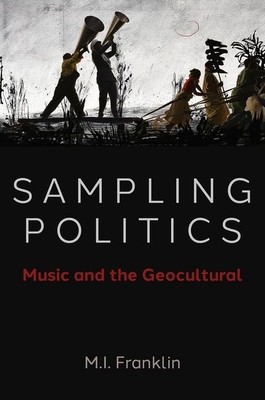
- We will send in 10–14 business days.
- Author: M I Franklin
- Publisher: Oxford University Press, USA
- ISBN-10: 0190855487
- ISBN-13: 9780190855482
- Format: 15.5 x 23.6 x 2.3 cm, softcover
- Language: English
- SAVE -10% with code: EXTRA
Reviews
Description
Music sampling has become a predominantly digitalized practice. It was popularized with the rise of Rap and Hip-Hop, as well as ambient music scenes, but it has a history stretching back to the earliest days of sound recording and experimental music making from around the world. Digital tools
and networks allow artists to sample music across national borders and from diverse cultural traditions with relative ease, prompting questions around not only fair use, copyright, and freedom of expression, but also cultural appropriation and copywrongs. For example, non-commercial forms of
sharing that are now commonplace on the web bring musicians and their audiences into closer contact with emerging regimes of commercial web-tracking and state-sponsored online surveillance. Moreover, when musicians actively engage in political or social causes through their music, they are liable to
both commercial and state forces of control. Shifts back to corporate ownership and control of the global music business--online and offline--highlight competing claims for commercial and cultural ownership and control of sampled music from local communities, music labels, and artists.
Sonia Mehta. Sampling Politics provides ways to listen and hear (again) how sampling practices and music making work, on its own terms and in context. In so doing, M.I. Franklin corrects some errors in the public record, addressing some longstanding misperceptions over the creative, legal, and
cultural legacy of music sampling in some cases of rich, and complex practices that have also been called musical borrowing, cultural appropriation, or theft. This book considers the musicalities and musicianship at stake in each case, as well as the respective creative practices and
performance cultures underscoring the ethics of attribution and collaboration when sampling artists make music.
EXTRA 10 % discount with code: EXTRA
The promotion ends in 17d.07:07:15
The discount code is valid when purchasing from 10 €. Discounts do not stack.
- Author: M I Franklin
- Publisher: Oxford University Press, USA
- ISBN-10: 0190855487
- ISBN-13: 9780190855482
- Format: 15.5 x 23.6 x 2.3 cm, softcover
- Language: English English
Music sampling has become a predominantly digitalized practice. It was popularized with the rise of Rap and Hip-Hop, as well as ambient music scenes, but it has a history stretching back to the earliest days of sound recording and experimental music making from around the world. Digital tools
and networks allow artists to sample music across national borders and from diverse cultural traditions with relative ease, prompting questions around not only fair use, copyright, and freedom of expression, but also cultural appropriation and copywrongs. For example, non-commercial forms of
sharing that are now commonplace on the web bring musicians and their audiences into closer contact with emerging regimes of commercial web-tracking and state-sponsored online surveillance. Moreover, when musicians actively engage in political or social causes through their music, they are liable to
both commercial and state forces of control. Shifts back to corporate ownership and control of the global music business--online and offline--highlight competing claims for commercial and cultural ownership and control of sampled music from local communities, music labels, and artists.
Sonia Mehta. Sampling Politics provides ways to listen and hear (again) how sampling practices and music making work, on its own terms and in context. In so doing, M.I. Franklin corrects some errors in the public record, addressing some longstanding misperceptions over the creative, legal, and
cultural legacy of music sampling in some cases of rich, and complex practices that have also been called musical borrowing, cultural appropriation, or theft. This book considers the musicalities and musicianship at stake in each case, as well as the respective creative practices and
performance cultures underscoring the ethics of attribution and collaboration when sampling artists make music.


Reviews